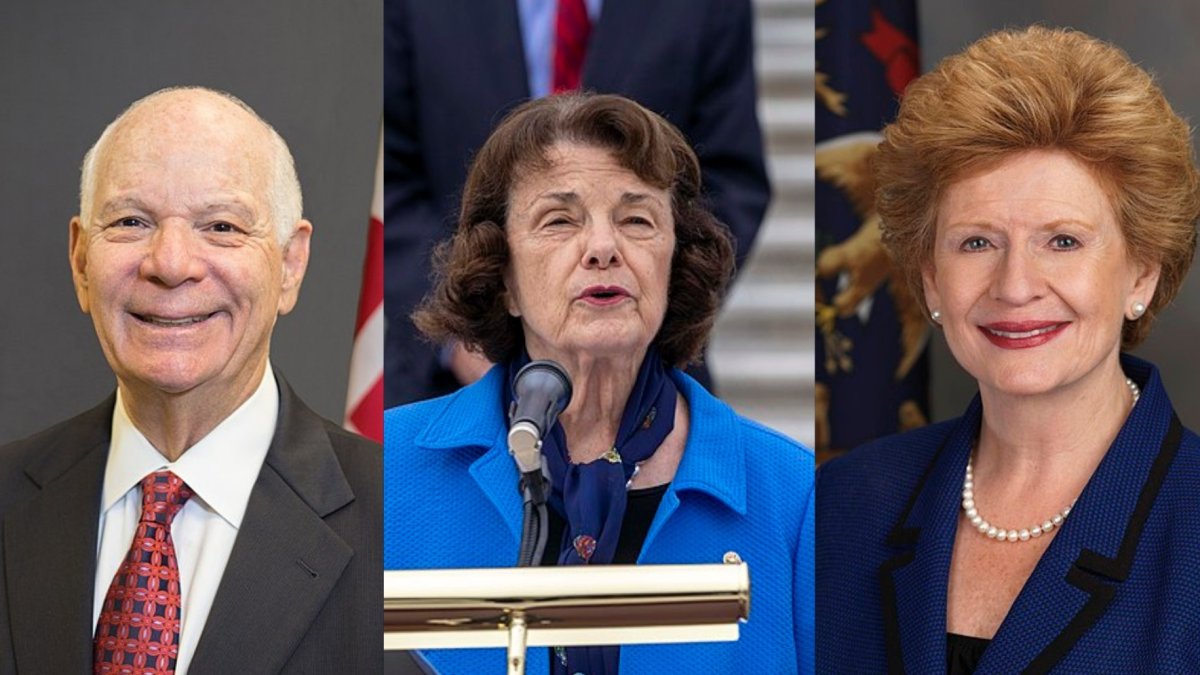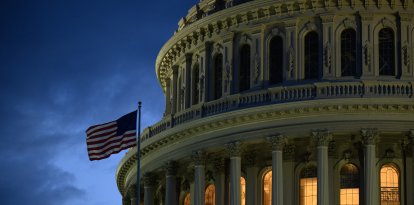The three Democratic senators who will not seek reelection in 2024
Ben Cardin, Dianne Feinstein and Debbie Stabenow will abandon their seats in January 2025 and the competition to succeed them has already begun.

Ben Cardin- Dianne Feinstein- Debbie Stabenow/Wikimedia Commons
Senator Ben Cardin recently announced that he will not seek another term in the Senate. Although he assured that he would continue working until January 2025, he decided it was time to step aside, and he was not the only one to make this decision.
For now, the Maryland senator's name joins those of Debbie Stabenow (D-MA) and Dianne Feinstein (D-CA). The former revealed that she wanted to "pass the torch at the right time," while the latter reached the same conclusion at age 89.
Debbie Stabenow
Stabenow's seat is arguably the most competitive of the three. The last Senate election in Michigan was in 2020 and was decided by a mere 1.7%: the second closest election of the 2020 cycle, behind only Ossof vs. Perdue in Georgia.
Stabenow, 76, first came to the Upper House in 2001 after defeating Republican incumbent Spencer Abraham. Over time, she became entrenched in the caucus leadership and is currently third in the chain of Democratic leadership. She also chairs the Agriculture Committee and is one of Majority Leader Chuck Schumer's closest allies.
Stabenow announced in January 2023 that she would step aside, to the surprise of many Democrats. One congressman even said he was "stunned" by the news. The senator backed up her decision by saying it wasn't necessary to rely on her name being on the ballot to retain her seat. "When it became so clear that we had done so well and had such wonderful new leaders on the way, I felt confident that I could seriously consider it. For me, it's important to pass the torch at the right time, and I really feel that this is the right time," she said.
Just hours after her announcement, the highest profile Democrats began the movement to seek her seat, which she will vacate in January 2025. So far, Representative Elissa Slotkin is the most renowned candidate among those who have presented. She represents the 7th Congressional District and even served in Barack Obama's administration.
Dianne Feinstein
The 89-year-old Californian revealed her intentions in mid-February, but her advanced age made the decision not such a surprise in Washington, much less in her home state, where some names have already been put forward to replace her.
Feinstein holds the record for being the longest-serving female senator in the Senate, and two strong women are seeking to follow in her footsteps: Barbara Lee and Katie Porter, who represent the 12th and 47th congressional districts, respectively. Lee is the longest-serving, with over 20 years in the House, while Porter arrived on Capitol Hill in 2019.
The third nominee is Adam Schiff, who was ousted from the Intelligence Committee by House Republicans. According to the latest polls, he is the favorite to win the nomination, although Porter is hot on his heels.
Ben Cardin
The latest addition to the list, the 79-year-old senator from Maryland announced in early May his decision not to seek a third term, although he assured that "there is still a lot of work to be done."
During Senate tenure, he has worked primarily on retirement plans, tax policy, and public health care for seniors. In addition, he was one of the 133 congressmen who voted against the Authorization for Use of Military Force Against Iraq Resolution of 2002.
For now, Prince George's County Executive Angela Alsobrooks and current House member David Trone are expected to enter the race to succeed him. Both began working on their candidacies even before Cardin's announcement. Alsobrooks has already hired Dave Chase, Tim Ryan's 2022 campaign manager, to manage his candidacy. Dan Morrocco, who worked the Connecticut governor's re-election bid, is expected to do the same for Trone's campaign.
At least two of the three races will be easy for Democrats to retain their seats. Despite not having the weight of an incumbent on the ballot, California and Maryland should pose no electoral problem for Chuck Schumer's leadership.
Michigan may prove to be a different story, and Republicans hope to do well there in 2024. Currently, the potential leading candidates are James Craig, Ruth Johnson, Peter Meijer, Bill Huizenga and Lisa McClain.

























